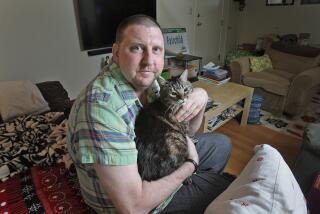‘Death Is Not a Disease’
- Share via
Paterson makes the point well that many elderly experience the pointless prolongation of the dying process. She seems, however, to feel that this is beyond the patient’s control, that patients have no choice in their terminal care. At least in California, that is an error; the Durable Power of Attorney is a simple document that allows the individual with foresight to limit medical care given if he is unable later to express his wishes. The patient who is awake and competent has the right to refuse any treatment he wishes.
Why, then, do so many wind up in “the ritual of prolongation?” Commonly, when treatment is begun there is optimism about the outcome and everyone supports the plan; if complications arise, treatment becomes more technical as the prognosis becomes more uncertain, and the question may arise whether to continue. However, ethicists have made it clear that treatment once begun need not necessarily be continued. The patient’s wishes, or if he is unable to express them, those of the family, should still prevail.
JOHN S. MARSH, M.D.
Whittier






